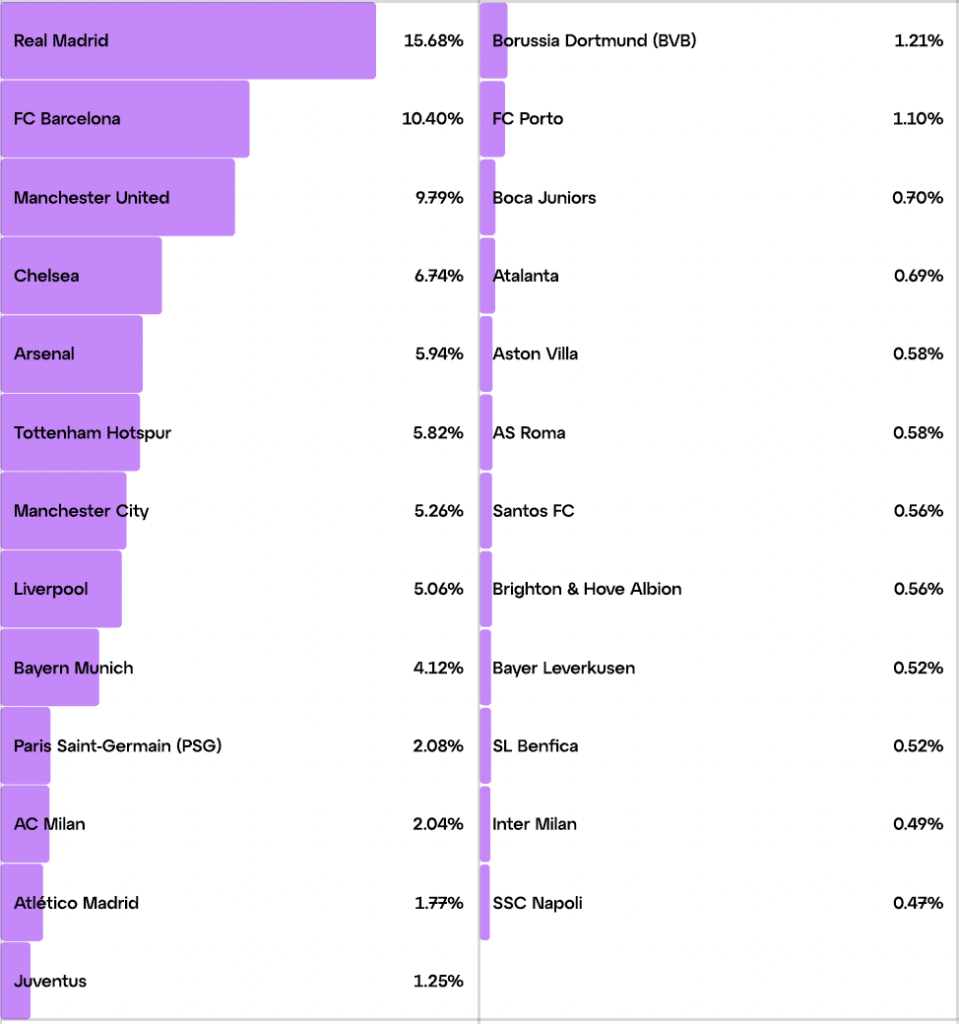October 17 – Real Madrid, Barcelona, and Manchester United have emerged as the most globally supported football clubs by fans outside their home nations, according to a new report by sports blockchain company Chiliz.
While La Liga’s giants top the list, the report highlights the Premier League’s dominance, with six of the top ten most supported teams coming from England’s Premier League. The fandom is not limited to the traditional Premier League performers with clubs like Brighton, who have only spent seven years in the top flight, ranking within the top 20 teams.
The Global Football Fan Report, which uses a sample size of 8,000 fans from countries including the UK, USA, Brazil, South Korea, Nigeria, Japan, Italy, and Turkey, found that 86.6% of football fans worldwide follow clubs from outside their domestic leagues.
Unexpectedly, the stats shows that 33% consider a foreign team to be their primary club.
Manchester United, despite not having won the Premier League since 2013, remain a global footballing powerhouse, with more international fans than domestic rivals like Chelsea, Arsenal, and Manchester City.
Premier League clubs are particularly popular in countries like the USA, South Korea, and Nigeria.
Tottenham Hotspur’s following in South Korea is especially noteworthy, with 42.3% of fans in the country pledging their support to Spurs – largely due to the heroics of South Korean star Son Heung-min. South Koreans are more likely than any other nation to base their support on an individual player, with 58% of fans choosing a foreign team for this reason.
In Japan, the trend is similar, as 49% of fans choose their club due to a national team star player, notably Brighton’s Kaoru Mitoma. Brighton has a relatively strong Japanese fanbase, with 4% of respondents choosing them as their preferred overseas team – more than Chelsea or Manchester City.
The report also examines how fans engage with their favourite teams. While 48% primarily watch matches to stay connected, 79% say digital platforms like social media significantly enhance their experience. Increasingly, fans are turning to online platforms to follow clubs across borders, with 43% using social media and 23% engaging through video games.
Despite these high levels of engagement, fans still want more from their clubs. A staggering 83% believe their overseas clubs should do more to interact with international supporters. Virtual meet-and-greets, fan voting on club decisions, and improved loyalty programs are among the top engagement tools that fans hope to see more of in the future.
This growing global fanbase underscores the increasingly international nature of football fandom, and clubs may need to rethink their approach to meet the rising expectations of their far-reaching supporters.
Contact the writer of this story, Harry Ewing, at moc.l1745062465labto1745062465ofdlr1745062465owedi1745062465sni@g1745062465niwe.1745062465yrrah1745062465

